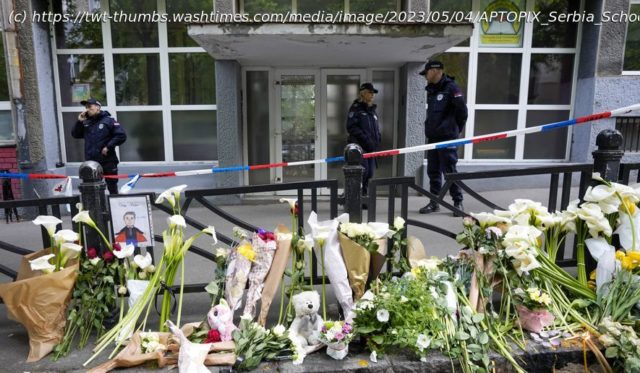Array
A shooter killed at least eight people and wounded 13 in a drive-by shooting in a town close to Belgrade late Thursday, the second such mass killing in Serbia in two days, state television reported.
The attacker used an automatic weapon to shoot randomly at people near the town of Mladenovac, some 50 kilometers (30 miles) south of the capital, the RTS report said early Friday. Police were looking for the 21-year-old suspect, who fled after the attack, the report said.
Serbian Interior Minister Bratislav Gasic called the shooting “a terrorist act,” the report said.
Special police and helicopter units have been sent to the region as well as ambulances, it added.
No other details were immediately available, and police had not issued any statements.
On Wednesday in Belgrade, a 13-year-old boy used his father’s guns in a school shooting rampage that killed eight of his schoolmates and a school guard. The bloodshed sent shockwaves through the Balkan nation unused to such mass murders.
Dozens of Serbian students, many wearing black and carrying flowers, paid silent homage Thursday to peers killed a day earlier.
The students filled the streets around the school in central Belgrade as they streamed in from all over the city. Earlier, thousands had lined up to lay flowers, light candles and leave toys to commemorate the eight children and a school guard who were killed on Wednesday morning.
People cried and hugged outside the school as they stood in front of heaps of flowers, small teddy bears, soccer balls. A gray and pink toy elephant was placed by the school fence along with messages of grief, and a girl’s ballet shoes hung from the fence.
The Balkan nation is struggling to come to terms with what has happened. Though awash with weapons left over from the wars of the 1990s, mass shootings still have been extremely rare — and this is the first school shooting in Serbia’s modern history.
The tragedy also sparked a debate about the general state of the nation following decades of crises and conflicts whose aftermath have created a state of permanent insecurity and instability, along with deep political divisions.






